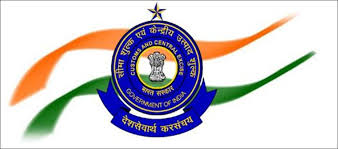
Even NRIs with offshore bank accounts cannot keep the taxman at bay by obtaining quick relief from the court of law. In order to prove their innocence, such persons will have to instruct the overseas banks to share information on the accounts with the Indian tax office.
And, only after the details released by the bank show that the money lying in the account does not belong to the person who has been pulled up (for hiding offshore assets), can he escape the glare of tax officials.
The Bombay High Court recently dismissed the writ petition filed by an NRI — an alleged beneficiary of a trust linked to an account with HSBC Geneva — after she refused to sign the “consent waiver” form to let HSBC share the information on the account. Governed by rules and conventions of banking secrecy, banks in Switzerland and tax havens divulge information only after account holders gives their consent.
 The court, in its order dated April 5, said, “In the normal course of human conduct if a person has nothing to hide and serious allegations/questions are being raised about the funds, a person would make available the documents which would put to rest all questions which seem to arise in the mind of the authorities.”
The court, in its order dated April 5, said, “In the normal course of human conduct if a person has nothing to hide and serious allegations/questions are being raised about the funds, a person would make available the documents which would put to rest all questions which seem to arise in the mind of the authorities.”
Since the court did not allow the withdrawal of petition, the order is likely to be used by the tax office which is trying to fish out bank account and transaction details from those it suspects to have accounts with HSBC Geneva.
According to the base note that the French government had shared with New Delhi, the petitioner Soignee R Kothari, along with six other individuals and two trusts, are beneficiaries of an account held by one White Cedar Investments with HSBC Geneva; the seven individuals in turn are beneficial owners of the two trusts.
As on 26 March 2006, the account had a balance of more than $44 million. The department had served Ms Kothari a notice to reopen assessment for the assessment year 2006-07.
She has later agreed (in a rejoinder before the court) to sign the consent waiver form with a modification — as ‘alleged beneficiary’ rather than ‘holder or beneficiary’ of the account in HSBC Geneva.
“With this, the Bombay High Court has precluded any alleged holder of overseas bank account from seeking alternative remedy by way of a writ. However, their right to contest any addition of income by the tax authorities would still survive. Thus, while NRIs can prove that they are outside jurisdiction of Indian tax authorities, they cannot wriggle out of investigation by virtue of being NRIs,” said senior chartered accountant Dilip Lakhani. The other six alleged beneficiaries of the trust are Arun Ramniklal Mehta, Russell Mehta, Viraj Russell Mehta, Rihen Harshad Mehta, Naina Harshad Mehta and Priti Harshad Mehta.
The court said that this bank statement if obtained from HSBC Geneva “would reveal and/or possibly give clues as to the source of amounts deposited in the Account No. 5091404580.” “If a person has nothing to hide, we believe the person would have co-operated in obtaining bank statements,” said
Source : http://economictimes.indiatimes.com/articleshow/51870910.cms





